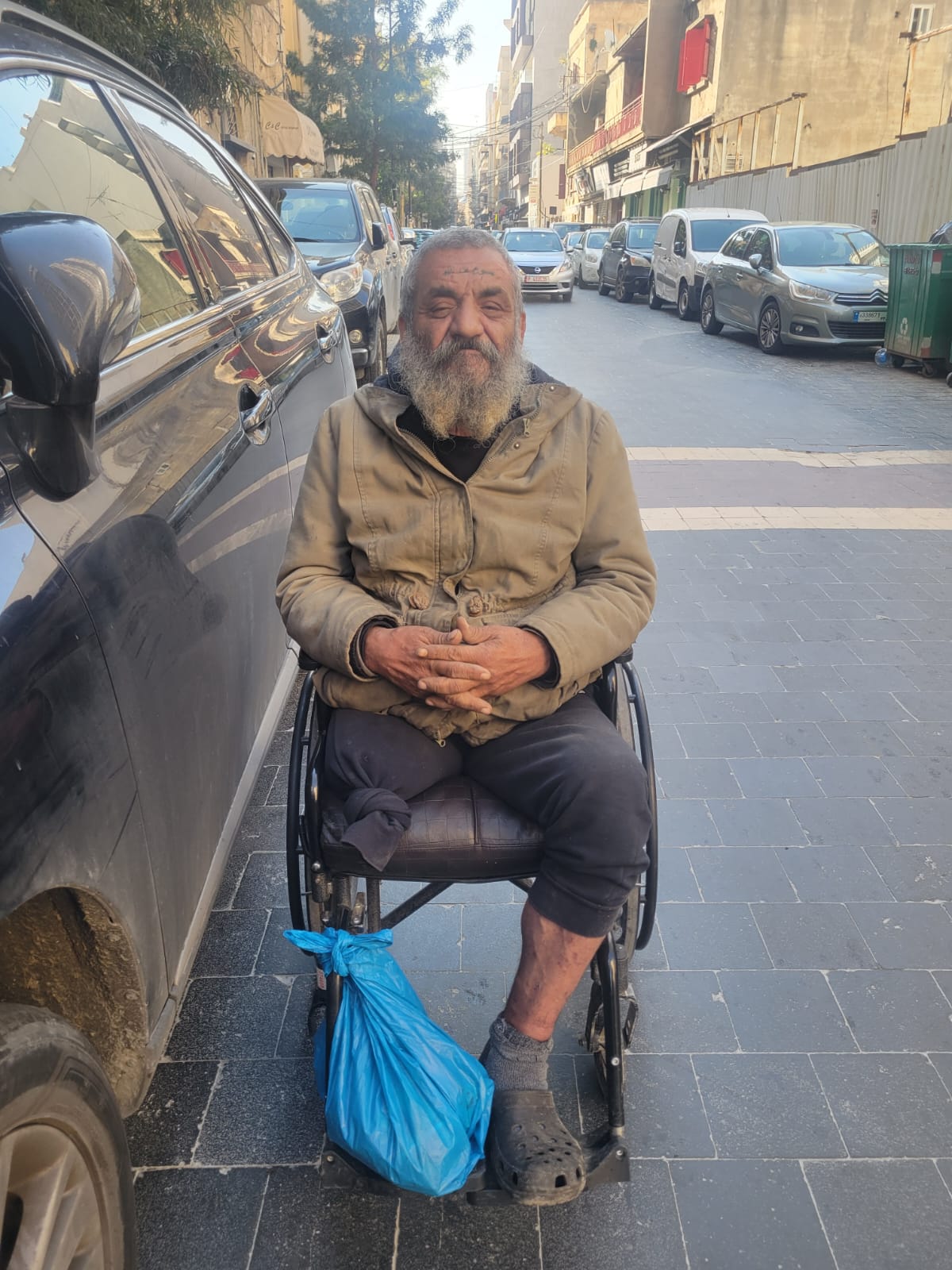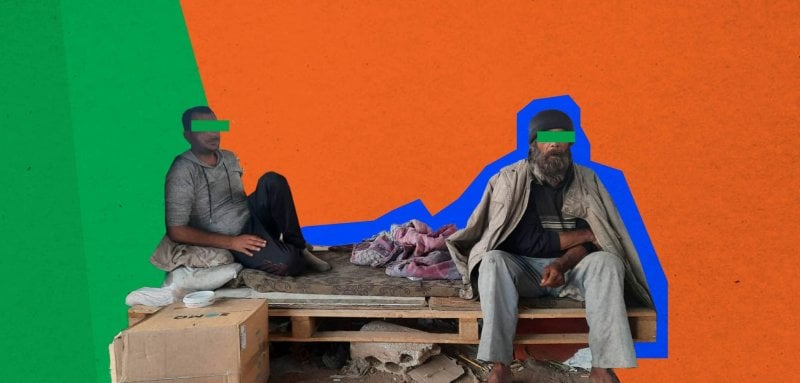It is not uncommon to have people knocking on my car window or asking for money as they see me passing by the streets of Beirut. The phrase, “bas alf” is one I often hear and one that perplexes me. It means 1000 liras, an amount that became completely worthless after the financial crash of 2019. So, exactly how bad is homelessness and poverty in Lebanon? It’s worse than one would like to admit.
Due to a number of factors in recent years, homelessness in Lebanon has been further exacerbated. At the heart of the crisis is the economic depression which has gone on for four years. When the Lebanese Lira lost its purchasing power, rents went up and wages dropped. In a short time period, people found basic commodities more expensive. Recurring regional wars displaced thousands and only deepened the housing crisis. And now, to add insult to travesty, Lebanon faces the possibility of another full-scale war with Israel - causing more destruction to the local infrastructure.
Seeing homelessness before me
As I walk through the capital of Beirut, I see homeless citizens who are forced to live a life of beggary with hardly any shelter to protect themselves.
One person I pass by every time I visit the historic neighborhood of Gemmayze, is a man named Samir. It is easy to find him on the side of the road asking for cash and assistance. He is an elderly man in a wheelchair who had his right leg amputated after discovering it was infected. I increased my visits to Lebanon in the last few years, and since then, I started to see him. It was a mystery to me, why didn’t he have any family helping him? Whenever he and I meet, he starts by saying, “hello, Habibi!” I always try to give him spare change. Samir finds shelter in a small hotel that offers him a place to sleep every night for 300,000 Lebanese pounds – a little over $3 USD.
The creation of a national policy on affordable housing, which currently does not exist, can mitigate the crisis of homelessness.
He told me a story about his children in Kuwait who abandoned him after he converted to Christianity from Islam. It never occurred to me that a family would walk away because of a change of faith. Unfortunately, it happens. Samir is not alone.
 Samir in Gemmayze, image courtesy Adnan Nasser.
Samir in Gemmayze, image courtesy Adnan Nasser.
What causes homelessness in Lebanon?
The exact number of homeless people in Lebanon is difficult to accurately assess. Most of the relevant information was documented after the August 4, 2020 Beirut port blast. NGOs and international aid quickly came to the support of Lebanon after the devastating explosion that ripped the city apart and left hundreds of thousands without homes. One organization, Famvin, found 300,000 people had experienced a housing crisis in the immediate aftermath of the blast. That number has substantially decreased credited to global solidarity through NGOs, the United Nations, and aid from other international bodies. Nevertheless, the problem still clearly exists and there is far too much inaction on the issue from the Lebanese state. No doubt, national stability should be addressed first. Indeed, if a war breaks out across the whole of Lebanon, a greater number of innocent people will face internal displacement, further homelessness, and the risk of being killed. This will lead to more international dependency to ensure the survival of ordinary people.
Possible solutions
With the economic crisis only worsening, it is hard for citizens to find employment and work their way out of poverty - posing the risk of more people being casted out into the streets.
It is not uncommon to have people knocking on my car window or asking for money as they see me passing by the streets of Beirut. The phrase, “bas alf” is one I often hear and perplexes me. It means 1000 liras, an amount that became completely worthless after the financial crash of 2019.
The creation of a national policy on affordable housing, which currently does not exist, can mitigate the crisis of homelessness. Parliamentarians from the “Change” bloc and opposition MPs that form the “Strong Republic,” should push this on the political agenda of the current caretaker government and in the future cabinet – once a new president is elected to office.
An example of where this has worked is in the tiny city-state of Singapore in Southeast Asia. Its social housing model has made 80% of the population homeowners. In 1960, Singapore's first independent government, led by Prime Minister Lee Kuan Yew, initiated a national authority to end homelessness called the “The Housing and Development Board” (HDB). Decades passed, and massive apartment blocks were built for the citizens of Singapore, drastically reducing the number of homeless people. The Lebanese state can and should derive lessons from Singapore. Ironically, the founders of Singapore, looked at how the Lebanese were running their country during the 1960s and learned from the example. Although, most of the homeowners in Singapore live in houses built by the government - they own the residential properties, not the state. A crucial fact to point out is that Singapore deliberately made sure that the housing program would have peoples of all backgrounds living in the apartments - to create a sense of harmony and social cohesion among the country’s mixed population.
The Lebanese state can and should derive lessons from Singapore. Ironically, the founders of Singapore, looked at how the Lebanese were running their country during the 1960s and learned from the example.
Raseef22 spoke with Independent MP Ibrahim Mnemineh about the situation of homelessness in Lebanon, who echoed the government's responsibility to provide its citizens with sustainable housing solutions. He shared, “Of course we can pressure the state to create a safe environment for the homeless. We need to put forward a strategy to get people off the streets. This is something important. We need a plan for social housing that covers segments of society that cannot afford homes on their own. It is part of the responsibility of the government to do this.”
Right now, the state appears absent from intervening on the behalf of citizens who live in dire conditions. Those who do not wish to see further homelessness in Lebanon should demand action from the government and actively support the mission to provide proper housing for those in need. People must not be forced into a life of indefinite humiliation and danger on the streets.
* The views and opinions expressed in this article are those of the author’s and do not necessarily reflect the official policy or position of Raseef22
Raseef22 is a not for profit entity. Our focus is on quality journalism. Every contribution to the NasRaseef membership goes directly towards journalism production. We stand independent, not accepting corporate sponsorships, sponsored content or political funding.
Support our mission to keep Raseef22 available to all readers by clicking here!
Interested in writing with us? Check our pitch process here!



